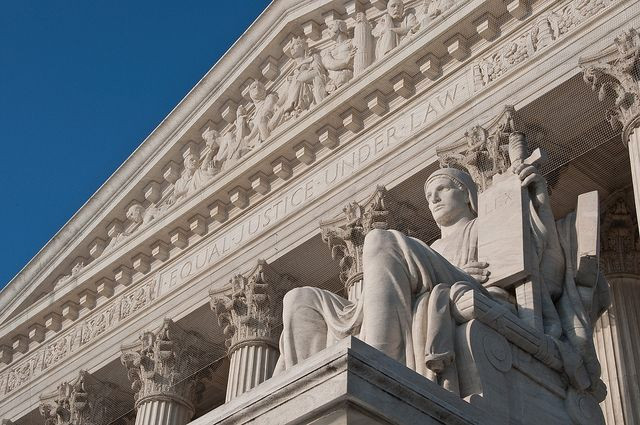Texas Abortion Law: Rights Groups Urge Supreme Court To Block Restrictive Provisions

Following the federal appellate court’s reinstatement of Texas’ polarizing abortion law, Planned Parenthood and other rights groups have now filed an emergency notion asking the Supreme Court to halt the implementation of its remarkably harsh restrictions, which they say will infringe on women’s rights and place undue burned on clinics that cannot afford to meet the bill’s pricy new standards.
The motion, which could represent the first step towards an important precedent for lawmakers and activists, was submitted four days after an appellate court reversed the ruling of Judge Lee Yaekel. In his decision, Yaekel partially rejected the law, deeming some of its more restrictive provisions to be “without a rational basis.” Yaekel was particularly critical of the provision whereby abortion clinics have inpatient admission privileges at a fully-equipped health center located within 30 miles. But when the state appealed, a three-judge panel of the 5th Circuit Court of Appeals reversed Yaekel’s ruling, calling the law “another layer of protection” for patient safety.
Since implementation of the law last Thursday, a third of the state’s abortion providers have been forced to discontinue this service. "A dozen abortion providers were forced to cancel appointments immediately," Kenneth Lambrecht of Planned Parenthood of Greater Texas said, speaking to CNN. “Our patients are scared, some are angry, some have said they don't know how they're going to make the long trip to the next closest provider.”
Nancy Northup, president and chief executive of the Center for Reproductive Rights, said that the law is little more than a bureaucratic scheme to strip women of certain rights. “Right now, women in vast swaths of Texas are being turned away at clinic doors because of a bogus law that attempts to do underhandedly what states cannot do directly — block women from accessing abortion services," she said, speaking to the Los Angeles Times. “We now look to the Supreme Court to protect women's access to these essential healthcare services while we fight this critical court battle.”
However, proponents of the law contend that the new restrictions will up patient safety by underscoring the clinical aspect of the procedure. Texas Attorney General Greg Abbott, who successfully argued for the state in the appellate court, said that he believes in the panel’s unanimous decision, and that he will continue to defend the law before the Supreme Court if necessary. Similarly, Governor Rick Perry welcomed the ruling, calling it an affirmation of their right “to protect both the unborn and the health of the women of Texas."
Published by Medicaldaily.com



























